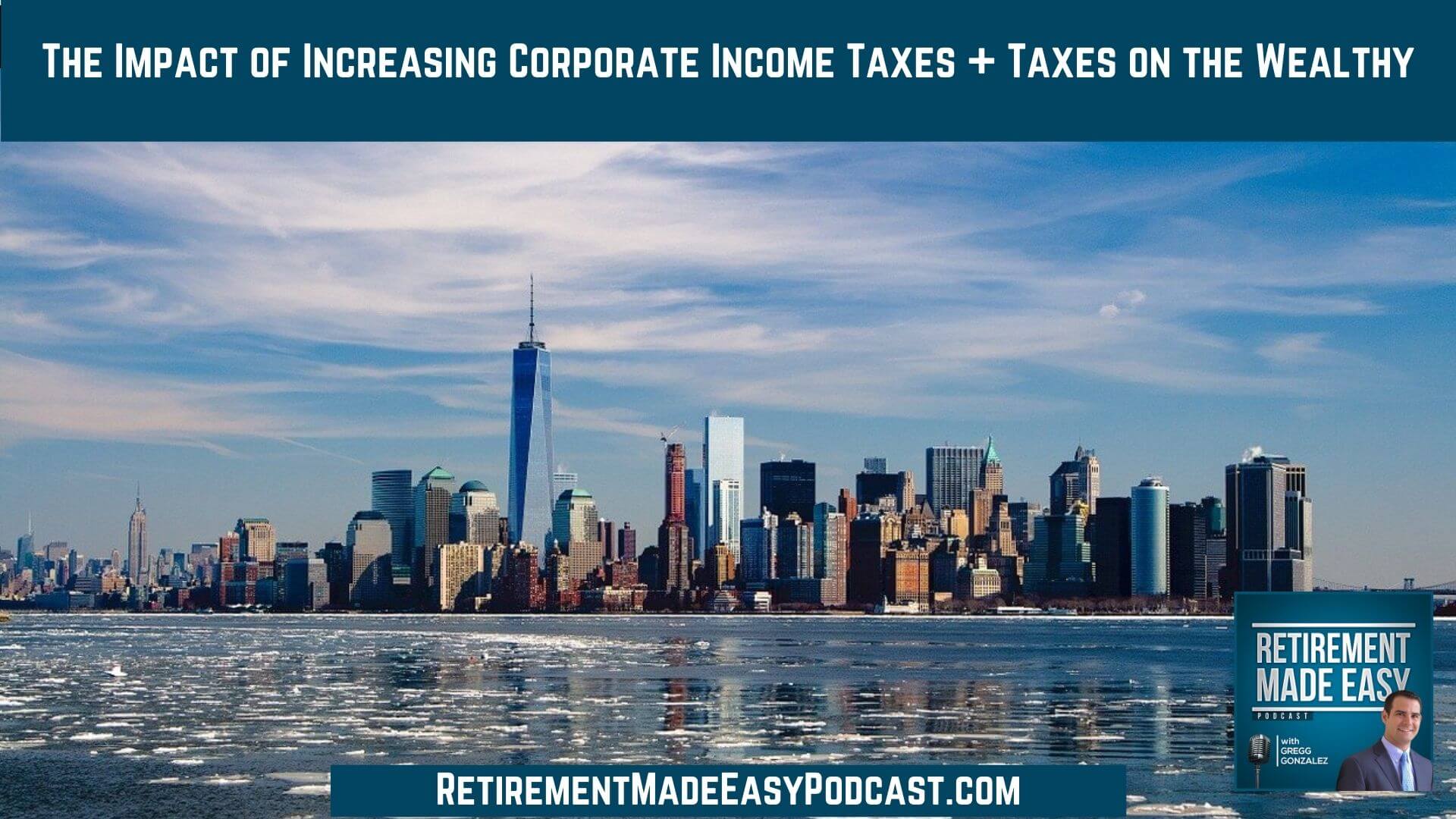
Why are large companies (like Amazon) getting tax breaks while the common man doesn’t? What about the wealthy—should those making more than $400,000 need to pay more in taxes? We are in a low tax environment right now and some people are upset by it. They say that corporations aren’t paying their “Fair Share” in taxes. But what happens if they do have to pay more in taxes? In this episode of Retirement Made Easy, I walk through what it could look like if corporate taxes and taxes on the wealthy were increased. The results won’t be what you think!
You will want to hear this episode if you are interested in…
- [2:14] Increasing corporate taxes
- [7:00] Increase in gas taxes
- [8:57] Increasing taxes on the wealthy
- [11:55] The goal is higher stock prices
- [13:20] Increasing taxes: the bottom line
Increasing corporate taxes
Many people believe corporate taxes should be much higher. When companies like Amazon or Walmart are taxed low, they’re incentivized to hire more people and grow their business. If you give companies an incentive, they improve the overall health of communities.
If someone in management finds out the next year’s taxes will double, they have to take action. They want the stock price to continue to grow. They want to improve shareholder value. They want to continue to pay dividends. That is where their allegiance lies.
So what is the first thing they do when corporate tax rates double? They raise the prices on the goods or services that they sell to all of your consumers. If Walmart doubles its prices, who’s paying for the increase in taxes? You & I.
Let’s just assume Walmart increases its prices by 10% (and that we shop there). Your grocery bill goes up 10% on average. You got a 1% raise at your job. It probably didn’t help you much, right? You’re 9% behind. If you increase corporate taxes on big companies, they’ll also be less inclined to hire new people. People don’t think about the ramifications of these increases in taxes. How does an increase in taxes on gas impact you? Keep listening to find out!
Increasing taxes on the wealthy ($400,000 + annually)
What happens when you increase taxes on the wealthy? Many people who make this much money per year own a business. Let’s just assume the person in my example owns an electrical company. If you tax them more, he or she might just increase the price of their electrical services that they charge customers. They may be less inclined to hire new people for their business. No one wants to take home less money, right?
It’s natural to have a response to offset that cost. Most people aren’t going to do more work or add on more projects to an empty plate. They’ll start by increasing the price of their product or service. That means that middle-class families will pay more and have less money to work with in their budget.
Increasing taxes: the bottom line
A company’s success in the stock market comes back to its earnings. The more money they make and the better their earnings, the better their stock does. The price should hypothetically continue to rise as earnings rise. The more they make, the better the stock price will do. If we raise taxes, they will react by increasing their prices to keep their earnings and stock prices rising.
Increasing taxes on corporations and the wealthy doesn’t mean there’s less money to be paid by those who make under $400,000. It’s not “them versus us.” It’s not a fixed number of taxes that get paid to the IRS. The middle class and lower-income families are still paying the same amount. Most of us spend money at these corporations and small businesses.
An increase in taxes to “level the playing field” will hurt the lower and middle-class income brackets—not help them.
Connect With Gregg Gonzalez
- Email at: Gregg@RetireSTL.com
- Podcast: https://RetirementMadeEasyPodcast.com
- Website: https://StLouisFinancialAdvisor.com
- Follow Gregg on LinkedIn
- Follow Gregg on Facebook
- Follow Gregg on YouTube



